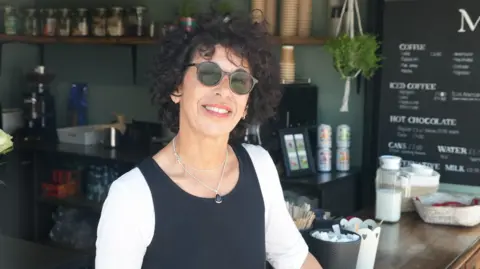
 Getty Images
Getty Images
Chocolate prices in the UK rose at the fastest pace on record in May as the overall cost of food continued to climb, official figures suggest.
The main rate of inflation remained at 3.4% in the year to May.
However, food prices grew for the third month in a row, as some economists speculated that businesses were passing on recent increases in employer National Insurance payments to customers.
The rise, along with a higher minimum wage, came into effect in April, after Chancellor Rachel Reeves announced the increases in last October's Budget aimed at raising £25bn.
Food prices have risen for three months in a row and, at 4.4% in May, are the highest since February last year.
Ruth Gregory, deputy chief economist at Capital Economics, suggested that the increase "perhaps provides a tentative sign that firms are passing on more of April's rise in National Insurance Contributions in their selling prices".
Chocolate in particular has been affected by bad harvests in cocoa-producing regions, as bad weather hit Ghana and Ivory Coast.
Chocolate stocks fell to all-time lows earlier in the year, making the price surge.
In the year to May, chocolate prices rose by 17.7%, according to the ONS. This is the fastest pace since 2016 when the ONS's records began.
Rising food inflation was partially offset by cheaper travel prices in May.
The Office for National Statistics said that the cost of plane tickets fell compared with a large rise last year "as the timing of Easter and school holidays affected pricing".
The overall pace of price rises in May was the same as in April, following a revision by the Office for National Statistics (ONS), and means that inflation remains at its highest for more than a year.
Inflation is above the Bank of England's target rate of 2% but it is not expected to cut interest rates when it meets on Thursday.
Commenting on the inflation rate, Chancellor Rachel Reeves said: "This government is investing in Britain's renewal to make working people better off."
But shadow chancellor Mel Stride called the latest inflation figures "deeply worrying for families".
"Labour's choices to tax jobs and ramp up borrowing are killing growth and stoking inflation - making everyday essentials more expensive," he said.
Kris Hamer, director of insight at the British Retail Consortium, which represents the sector, said: "Since October, retailers have warned that the costs from the chancellor's Budget could not be fully absorbed and would inevitably lead to higher prices for shoppers."
"Young families now price-check"

 Getty Images
Getty Images
Coffee stand owner Zayna Omer says young families are spending less on food
Zanya Omer, owner of coffee stand Harbour Grind in Whitstable told the BBC that business is "good" but she has noticed consumers' budget are squeezed.
Customers are not buying as much food from her, opting instead to bring packed lunches when they take a day trip to the Kent seaside town.
"Most people here are retirees, so they have income," Ms Omer said.
"But the young families, you do notice with them they will price check first or compare prices along the strip, and then come back."
Ms Omer said hidden costs - such as card machine fees which cost her about 10p extra per coffee sold - have led to her offering cash customers a small discount.
For now, she will keep her prices as they are. "I'd go out of business if I increase my prices," she said.
.png)
 6 months ago
19
6 months ago
19








 English (US) ·
English (US) ·